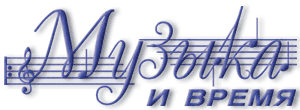 |
advertisement |
|
|
|
|
|
|
|
Music and Time
Annotation << Back
|
Axiological Aspects of the Competence Approach Problem in Training Musicians-Performers of Secondary Professional Link |
A.P. Danilenko
The content of the article is connected with the consideration of the emerging model of the competence approach to musical education in the axiological perspective - as a hierarchical system of values. From this position, three levels of competence assessment for students of music colleges and colleges have been determined. The first corresponds to a quantitative, formallyestimated criterion on a point scale. The second level contains a qualitative criterion for assessing competence that meets the basic requirements of the State Educational Standard: know-able-to-own. Analysis of the axiological significance of each component of this triad allowed to correct their content as a relation of competence levels in the field of theory (know), its practical application (to be able) and the top triad (possess), whose quality reflects the achieved integration through the dialectic synthesis of requirements to know and be able to. This criterion for assessing competence (the degree of involvement in the profession, the capacity for creativity, dedication) is determined by the determinant of the new model of vocational training. The article emphasizes the special significance of another level of the system, connected with the evaluation of the measure of the trainee`s personal attitude toward his profession. Professional self-determination in adolescence is an important component of the complex process of the formation of the self-concept, i.e. personal self-determination. Formation in the students of the value attitude to the acquired profession, not only as a matter of the future life, but as to its meaning, is proposed to be considered in the meaning of the main goal of the educational process and the most important function of the competence approach system.
Keywords: competence, axiology, self-actualization, professional individualization, acme.
Contacts: E-mail: sachadanile@yandex.ru
Pp. 31-36. |
|
|
|
Last news:
Выставки по автоматизации и электронике «ПТА-Урал 2018» и «Электроника-Урал 2018» состоятся в Екатеринбурге Открыта электронная регистрация на выставку Дефектоскопия / NDT St. Petersburg Открыта регистрация на 9-ю Международную научно-практическую конференцию «Строительство и ремонт скважин — 2018» ExpoElectronica и ElectronTechExpo 2018: рост площади экспозиции на 19% и новые формы контент-программы Тематика и состав экспозиции РЭП на выставке "ChipEXPO - 2018" |

